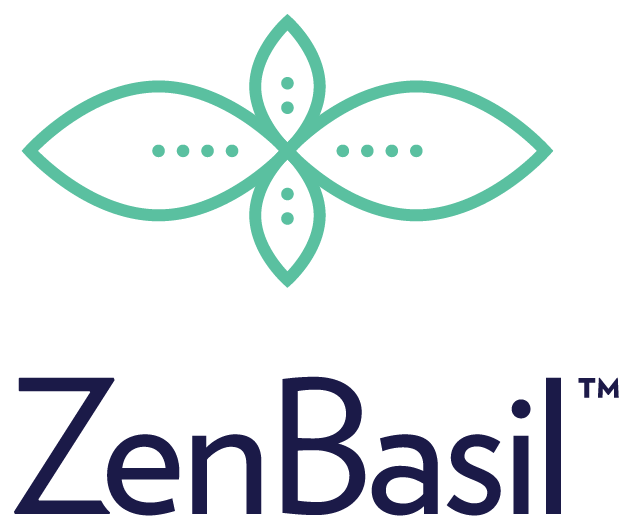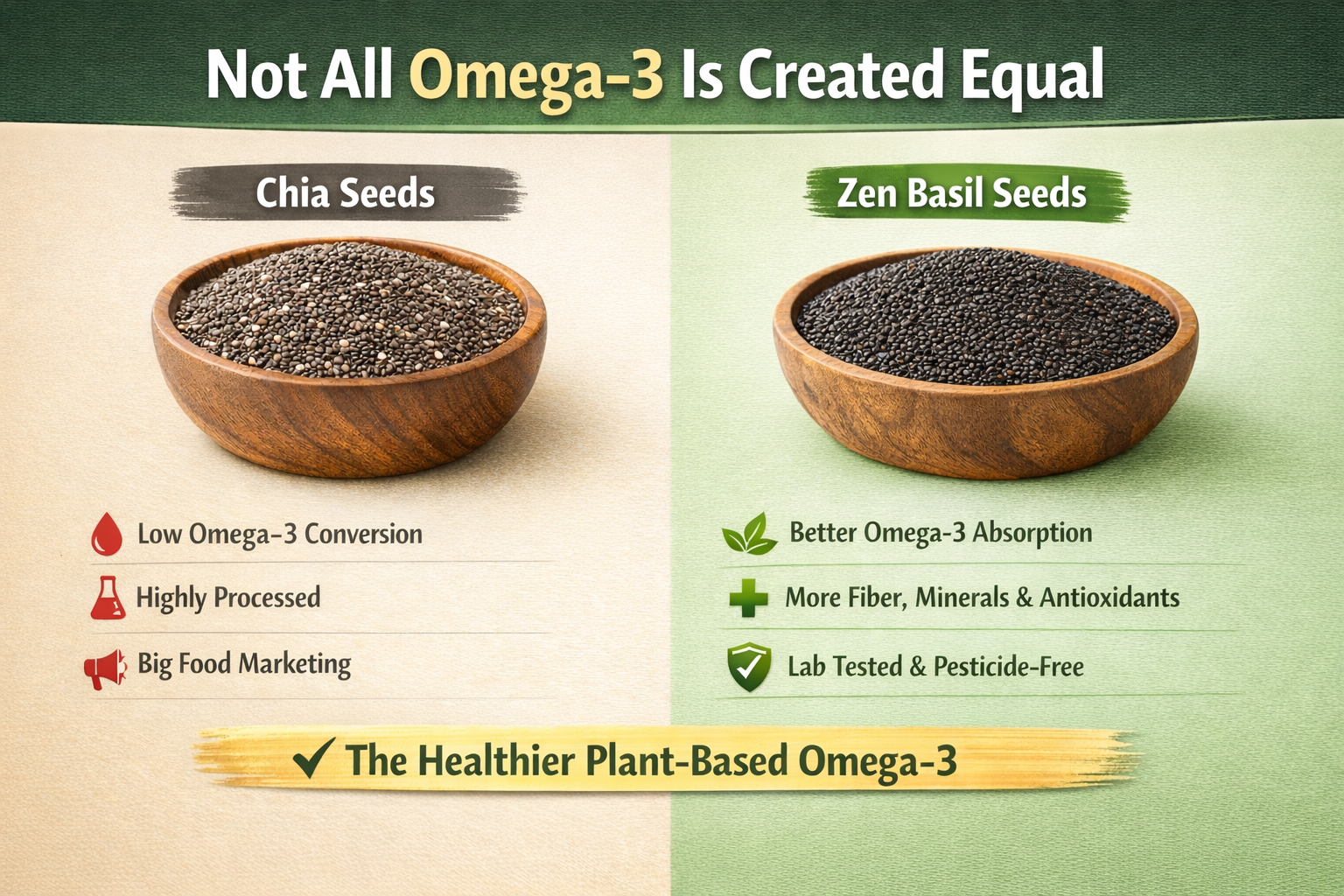Chia seeds are often promoted as one of the best plant sources of omega-3.
And on a nutrition label, that claim looks true.
But nutrition labels don’t show how much your body can actually use — and that’s where chia seeds and basil seeds are not the same.
Label numbers don’t equal real absorption
Both chia seeds and basil seeds contain a plant-based omega-3 fat called ALA (alpha-linolenic acid).
Human nutrition research published in journals such as The American Journal of Clinical Nutrition and Progress in Lipid Research consistently shows that:
Only a small percentage of ALA converts into the active omega-3 forms (EPA and DHA)
Conversion from chia seed ALA is especially low
Most of chia’s omega-3 remains unconverted in the body
This means a high omega-3 number on a label does not guarantee high biological benefit.
Why basil seed omega-3 works better in the body
Early food-science and metabolic studies on basil seeds (sabja / tukmaria) reveal a key difference:
Basil seeds deliver omega-3 in a more biologically supportive package.
Peer-reviewed research published in journals such as Journal of Food Composition and Analysis and Food & Function shows basil seeds provide:
Higher fiber
Higher calcium
Higher potassium
Higher iron
Higher antioxidant and polyphenol content
These nutrients work together — not in isolation.
Why this matters:
Fiber slows digestion and improves fat utilization
Antioxidants protect omega-3 from oxidation
Minerals support enzymes involved in fat metabolism
Animal and tissue-level studies suggest greater biological utilization of basil seed ALA than expected from plant omega-3 sources — meaning more functional benefit, not just a bigger number on paper.
This does not mean basil seeds replace fish oil.
It means the omega-3 they provide is used more effectively by the body than omega-3 from chia seeds.
Why chia dominates the market (and basil doesn’t)
Chia seeds didn’t become popular because they were proven superior.
They became popular because they were heavily funded and marketed.
Large multinational food companies — including Nestlé, Coca-Cola, and PepsiCo — have invested in or distributed products containing chia seeds.
That funding drives:
Influencer campaigns
Podcast sponsorships
Label-based talking points
Basil seeds, by contrast, are:
Not backed by conglomerates
Not promoted by billion-dollar ad budgets
Historically used as food outside Western marketing systems
Science existed before the marketing — but marketing decides what people hear.
A critical point most blogs leave out: contamination matters
Not all basil seeds on the market are equal.
Many basil seeds sold today:
Are grown for planting, not eating
Are not food-grade certified
Are not tested for pesticide or herbicide residues
Food-safety research shows that even low-level chemical residues can:
Disrupt gut bacteria
Interfere with mineral absorption
Reduce the functional value of nutrients
This includes glyphosate-related compounds, which published toxicology and microbiome studies show can interfere with digestive and metabolic pathways.
You cannot heal with a food that contains even small amounts of chemical residue.
Why certification and testing change everything
This is why verified, edible, tested basil seed matters.
Zen Basil — a small, family-owned American company — is currently the only certified edible basil seed brand in the U.S. with documented food-grade sourcing and third-party testing.
That distinction matters because:
Clean seeds preserve nutrient synergy
Tested seeds deliver predictable nutrition
Food-grade sourcing protects gut and metabolic health
The honest conclusion
Chia seeds show high omega-3 on labels but convert poorly in the body
Basil seeds deliver omega-3 in a more usable biological form
Basil seeds also provide more fiber, minerals, antioxidants, and polyphenols working together
Chia dominates due to corporate funding and marketing power
Basil seeds win through biology, not branding
Only clean, certified basil seeds can deliver their full health potential
Nutrition isn’t about the loudest claim.
It’s about what your body can actually use.

